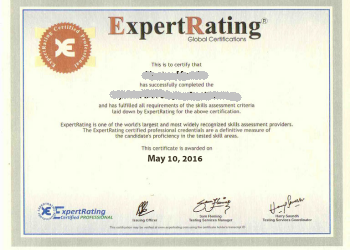Overview of Musical Elements
In this first lesson, you'll go through an overview of the major elements of music—melody, harmony, and rhythm. It's important that you understand these general terms because you'll explore each of them in detail in the coming lessons.
Rhythm, Beat, Meter, and Time Signatures
This is your introduction to the concept of rhythm. You'll explore its various components: beat, meter, and time signatures. You'll also learn how to read and apply time signatures to music.
Other Meters, Syncopation, and Tempo
You'll continue exploring meter in this lesson and then look at aspects of rhythm such as syncopation and tempo. You'll learn how and why syncopation is used.
Melody, Staff, Clef Signs, Pitches
In this lesson, you'll delve into the musical concept of melody. You'll learn to read the treble and bass clefs. You'll find out how to read notes found in musical compositions and how to notate pitches to create music.
Pitches Outside of the Staff
For many compositions, pitches are used that do not fall within the pitch range of the musical staff. With this lesson, you'll discover how to notate these pitches through the use of ledger lines.
Finding Pitches on the Keyboard
If you've wanted to learn how to play piano, you'll love this lesson. The focus is on learning the names of the keys on the keyboard. You'll match the pitches from the staff to the keyboard, so you'll be learning to read and play at the same time. By the end, you'll be able to read and play simple songs.
Construction of Major Scales
In this lesson, you'll learn how to build major scales. The scale is the building block for composing a piece of music. You'll find out how to construct a scale on any pitch.
Scale Degrees Names and Early Music Theorists
This lesson introduces you to the names of each member of the scale. Knowing these names will enable you to discuss the functions and roles of each pitch in any key. These concepts have roots in ancient Greece, so you'll learn a little about those who have influenced how people create music.
Major Key Signatures
Having covered major scales, you'll now examine the names of the major keys. You'll learn how to recognize the name of a key by the key signature and how to recognize a scale from the name of the key.
Concept of Harmony
This lesson will discuss the last musical element, harmony. It will focus on creating more than one pitch at a time—the layering of musical pitches. You'll begin by looking at two simultaneous pitches, known as intervals.
Compound Intervals, Interval Inversions, and Triads
In this lesson, you'll continue to explore intervals. One thing you'll learn is how to invert them, which is helpful when you work with chords. You'll also discover how to build three note chords, which are called triads.
Triads and the Tonic Dominant Chordal Relationship
In this final lesson, you'll examine some of the simple relationships between triads. You'll learn how to identify which chord should be used for harmony in simple two chord progressions.



